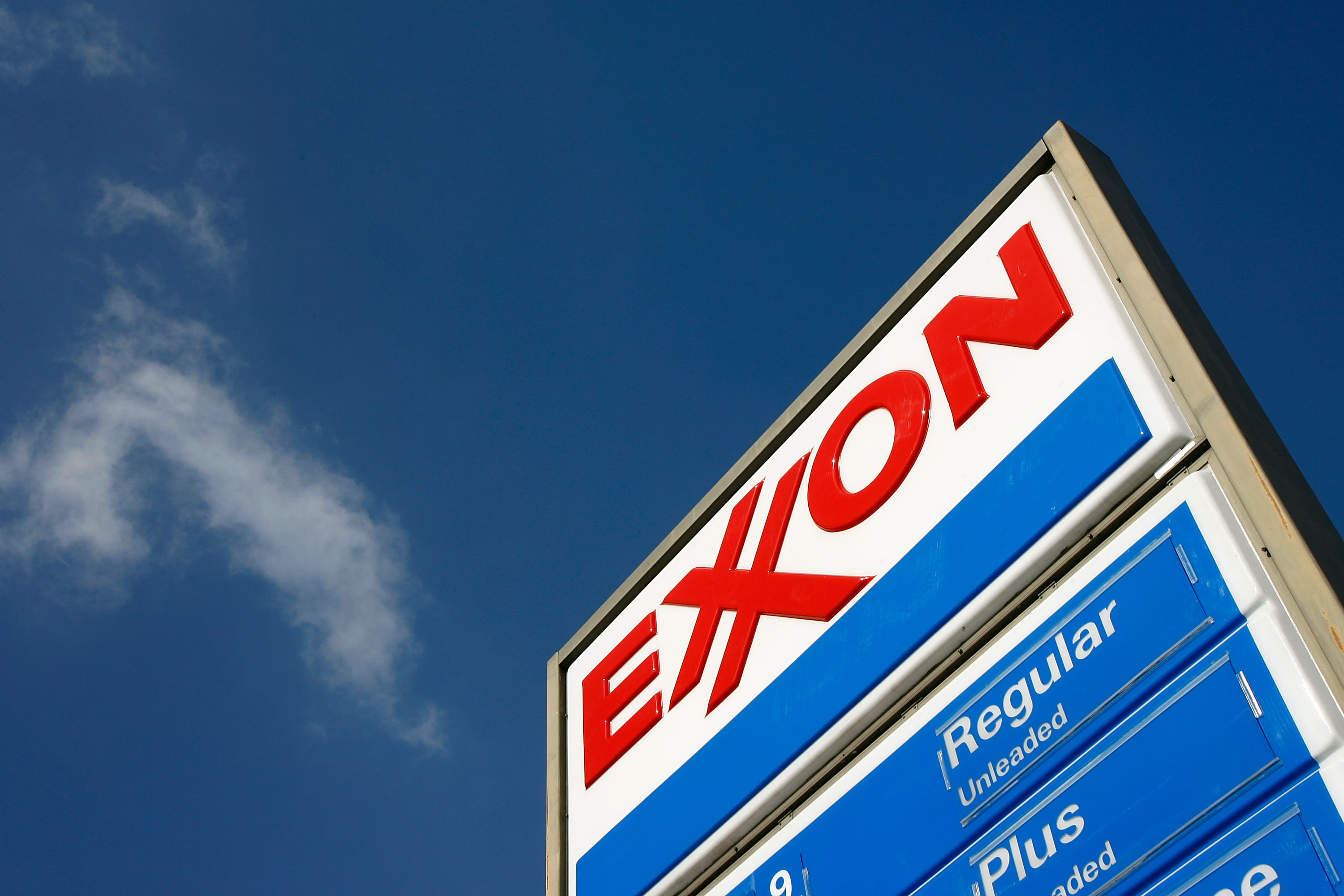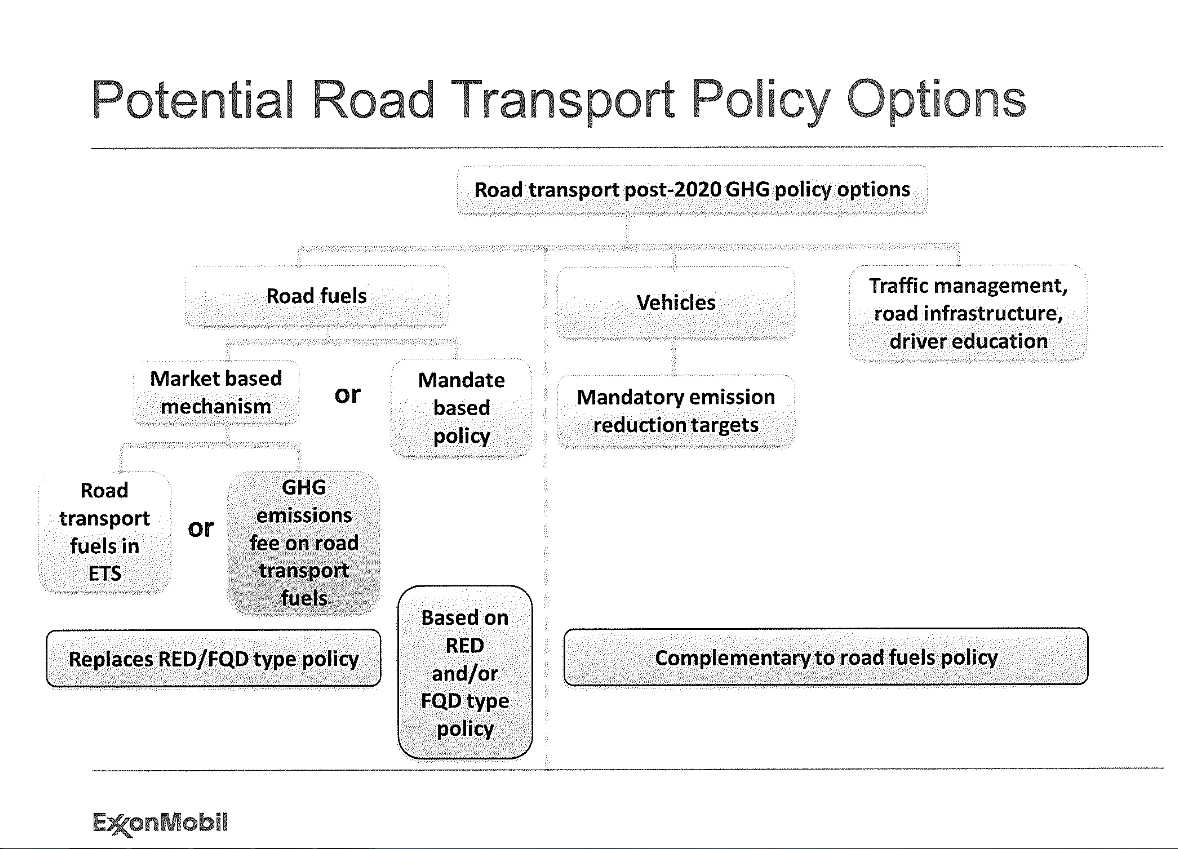Revealed: Oil giant Exxon lobbied against decarbonisation and electrification of EU transport

Exxon Mobil – the US fossil fuel giant currently under investigation for lying about climate change to its investors – has been lobbying against moves to limit emissions from cars and other vehicles in the EU which would drive the electrification of the sector.
In a leaked lobbying document seen by Unearthed, Exxon said “other sectors are likely to provide more direct cost-effective CO2 abatement solutions than the transport sector”.
Exxon pushes instead for two different solutions to reducing emissions in transport beyond 2020 that wouldn’t have much of an impact on emissions or oil demand.
However, Exxon said on Twitter:
.@StollmeyerEU Setting the record straight: We are in support of lowering #emissions in transport https://t.co/6qkaLdmcsk
— ExxonMobil Europe (@ExxonMobil_EU) December 7, 2015
The revelations about the role of the oil giant come to light during international climate talks in Paris and also as Europe is scrambling to consider its transport policy options in the wake of the Dieselgate scandal, precipitated by VW admitting they have used “defeat devices” to cheat emissions tests.
It’s the first evidence in the wake of the scandal of an oil company lobbying for weaker vehicle pollution standards in the EU.
In the presentation Exxon suggests that liquid fuels – including diesel – are set to dominate transport for years to come because electric vehicles are not yet ready.
Following the climate summit the EU will outline its plans to decarbonise the transport sector next year as part of a wider package of measures to meet the block’s 2030 40% carbon reduction goals.
Exxon lobbying
Despite having known about the science of climate change for decades Exxon has a long history of lobbying against efforts to reduce emissions. The firm founded and funded climate science denial groups, and even tried to block US participation in the seminal Kyoto climate talks.
Crucially, it – along with other oil firms and lobby groups – has also been successful in lobbying against a law in California that would have driven the shift to electric vehicles.
Oil majors are likely to be lobbying in the EU to try and prevent similar legislation in the EU post 2020, where there is a policy gap, according to EU transport experts.
The firm is also being investigated by the New York attorney general who is looking into the company’s lack of disclosure to its investors on the financial risks of climate change.
Avoidance
According to its presentation Exxon doesn’t seem to think that the transport sector should have to share the burden of decarbonisation – instead it wants to palm this off on other sectors, probably meaning power and heat.
“In the near term other sectors are likely to provide more direct cost-effective CO2 abatement solutions than the transport sector,” the firm states in an Exxon-branded presentation recently (in or around September) sent around to MEPs.
Of course, it’s not surprising the oil behemoth is against transport decarbonising as this will reduce oil demand and could significantly affect profits, destabilising its business model.
No wonder Exxon sees: “Liquid petroleum fuels will remain the primary transportation fuels in the forseeable future”.
Anti-electrification
Equally unsurprisingly, given its history and business model, Exxon isn’t keen on the electrification of the sector.
“Battery electric vehicles and fuel cell vehicles require further development and cost-reduction to be commercially viable at a large scale,” according to the leaked document.
There is also a focus on the idea of tech-neutrality and letting the market decide, rather than EU mandates such as fuel emissions and efficiency standards and the Fuel Quality Directive, which are the current tools to decarbonise transport in the EU up to 2020.
Electric vehicles are now actually reasonably competitively priced, especially on the second-hand market, though plug-in hybrids (part EV, part small petrol engine, extending range) are more expensive. Costs are coming down fast.
Post-Dieselgate several manufacturers, including VW, and Tesla have said they will push forward with affordable EVs.
Solutions

The US oil giant’s preferred option for decarbonising transport in the EU, according to the leaked document, is an emissions fee linked to the EU ETS (Emissions Trading Scheme).
It’s not clear what that means in practice, but it’s likely to be a small top up on fuel tax similar to fuel duties which already exist in many countries.
The current carbon price of 8 euros per tonne could correspond to adding only approximately 1.6 eurocents to the price of a litre, given that each litre of fuel would produce just under 2 kilos of CO2, according to a back-of-envelope calculation.
Analysts say the carbon price will be around 19 euros per tonne in 2020. At this rate, additional duty would be 3.8 euro cents per litre, adding up to only 1 euro 52 cents for a 40 litre fill up.
Even if the policy were meaningful, it would be almost impossible to implement at EU level since fiscal measures are decided unanimously.
The second option featured in the leaked Exxon presentation is including transport emissions in the EU ETS, which currently only encompasses power plants.
The controversial proposition of rolling transport into the ETS has been championed by the German car industry including BMW, Daimler, and Opel (a German subsidiary of General Motors), as well as the German car industry association VDA, of which VW is a member.
It has was also proposed last year by Denmark, which is seen as a leader on climate action in Europe. The country got a lot of flak for this idea, which it has now dropped.
The problem is that studies show policy would also not be effective in reducing transport emissions.
Cambridge Econometrics modeling concluded that the EU ETS carbon price would have to be over 200 euros per tonne in in 2020 to 2030 – “which seems implausible” – in order to get emissions down to the EU’s target of around 60g per km in 2030.
According to the study if you regulated transport emissions solely with the ETS would mean only a 1% reduction at current prices, and 3% if the EU acts to keep warming under the 2 degrees threshold.
Separate research from the International Council on Clean Transportation around the 2020 target of 95g of carbon per km came up with a similar conclusion: If you included transport emission in the ETS you would need a carbon price of 370 euros per tonne to meet the 2020 target – which will otherwise be achieved by EU mandates.
Also read:
- What are the potential results of the New York attorney general investigation into Exxon?
- ‘Dieselgate’ scandal: government regulator receives over £80 million from auto industry in past 10 years
- Power of Brussels car lobby revealed
- Dieselgate scandal: UK testing authorities approved Skoda and SEAT cars fitted with cheat software

